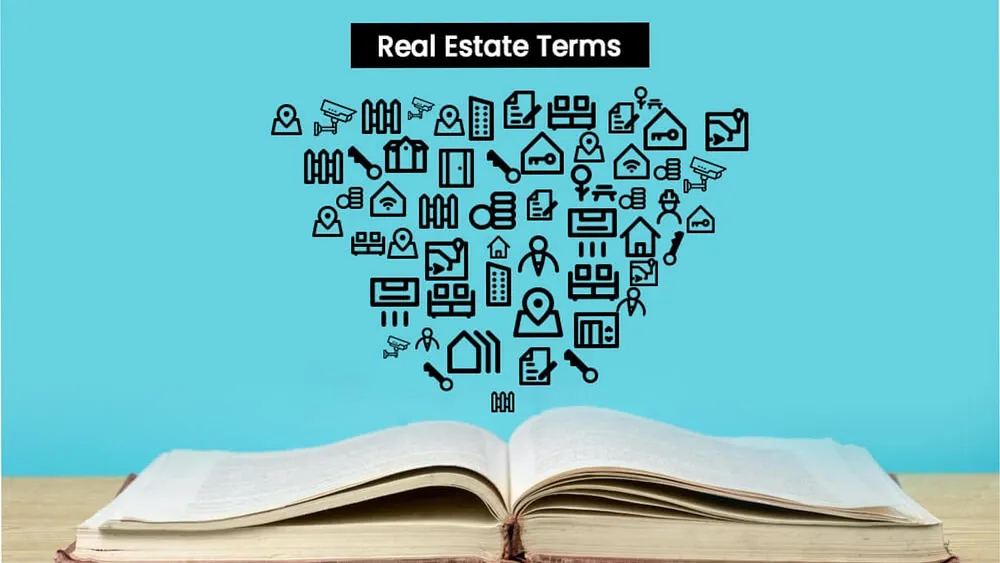Signature Collection
Explore SignatureThe Dubai real estate sector is booming with opportunities. Whether you're looking for a promising investment, a dream family home, or a career in property, it's essential to understand the language of the market. In this guide, we cover everything to know about the real estate glossary in Dubai by walking you through the most important terminologies used across the industry.
Key Organisations and Regulatory Bodies in Dubai Real Estate
The first part of our real estate investing glossary introduces you to the main regulatory institutions and systems that govern real estate operations in Dubai.
Dubai Land Department (DLD)
The DLD is the primary governing authority overseeing all property transactions in Dubai. It ensures transparency, legal compliance, and provides a structured framework for buyers, sellers, tenants, and landlords.
Real Estate Regulatory Agency (RERA)
RERA operates as a wing under the DLD and sets the rules for Dubai's property sector. From tenancy laws to agent licensing, this body regulates how real estate business is conducted in the emirate.
Rental Disputes Centre (RDC)
When conflicts between landlords and tenants arise, the RDC steps in. Located within the DLD, this centre facilitates swift dispute resolution and maintains a balanced, fair property environment.
Makani
Makani is a digital navigation system assigning a unique 10-digit code to every property. This innovation simplifies location tracking and emergency reporting, making it indispensable in real estate terminology.
Al Sa'fat
Al Sa'fat is Dubai's Green Building System that enforces sustainable construction practices. Its standards are mandatory for all new developments, supporting the emirate's green initiatives.
Trakheesi
The Trakheesi system is essential for real estate professionals. It issues permits and licenses to brokerage firms and agents, linking directly with Dubai's economic and property databases.
Common Contracts and Services in Dubai Real Estate
Next in our guide to common real estate terms are the key documents and systems used in Dubai’s property leasing and off-plan transactions.
Ejari
Ejari is a tenancy contract registration system. Without it, tenants can't access vital services like DEWA or sponsor family members. It formalises the rental relationship, offering legal security to both parties.
Oqood
Developers use Oqood to manage off-plan sales. It automates contract registration and improves transparency for investors, making it a cornerstone in property buying terminology for under-construction projects.
Musataha
Musataha agreements allow the lease of land for up to 50 years for development. It grants usage rights while maintaining land ownership with the lessor, often used in large-scale commercial projects.
Ownership Types and Property Metrics Jargons Used in Dubai
Understanding ownership structures and measurements is vital for buyers. Here's some real estate jargon explained.
Freehold
Freehold properties offer full ownership rights and are available to both residents and foreign investors in designated areas. These rights include the ability to sell, lease, or pass on the property.
Leasehold
In contrast, leasehold properties provide usage rights for a set period, typically 99 years. Ownership of the land remains with the original holder, limiting certain rights.
BUA (Built-Up Area)
BUA refers to the total constructed area on a plot, including all floors. For multi-storey buildings, this is the combined floor space across all levels.
Saleable Area
The saleable area includes only the usable, private space within a unit. Shared amenities such as hallways, lifts, and staircases are excluded, offering a clearer picture of livable space.
Essential Legal and Financial Terms
Last but not least, we highlight final entries in the real estate investing glossary that are crucial in Dubai property transactions.
SPA (Sales and Purchase Agreement)
This legally binding document outlines the terms of a property sale. It protects both buyer and seller and is typically drafted by a legal professional.
POA (Power of Attorney)
A POA allows someone to act on another person’s behalf for property-related decisions. It must be notarised and registered to be valid in Dubai.
Title Deed
Issued by the DLD, a Title Deed is the official document proving property ownership. It is essential for any sale, lease, or mortgage process.
Whether you are renting, buying, or investing, knowing these terms ensures you're prepared to navigate the Dubai property market with confidence. Understanding the real estate terminology used locally is your first step toward smart, informed property decisions.
FAQs
Yes, foreigners can buy property in designated freehold areas in Dubai. These areas allow full ownership rights, including selling, leasing, and inheritance.
Freehold grants complete ownership, whereas leasehold allows property usage for a fixed term, typically 99 years, without owning the land.
BUA (Built-Up Area) includes all constructed areas, including shared spaces, while saleable area refers only to private, usable space.
Yes, the Title Deed is a legal document issued by the DLD that proves ownership and is essential for all official transactions.
For more information, get in touch with us at Provident
 Apartments
Apartments Villas
Villas Townhouses
Townhouses Penthouses
Penthouses Commercial
Commercial See All Properties
See All Properties Commercial
Commercial Property Management
Property Management List Your Property
List Your Property Mortgages
Mortgages Conveyancing
Conveyancing Short Term Rentals
Short Term Rentals Property Snagging
Property Snagging Partner Program
Partner Program Currency Exchange
Currency Exchange PRYPCO
PRYPCO Ethnovate
Ethnovate Plots
Plots
